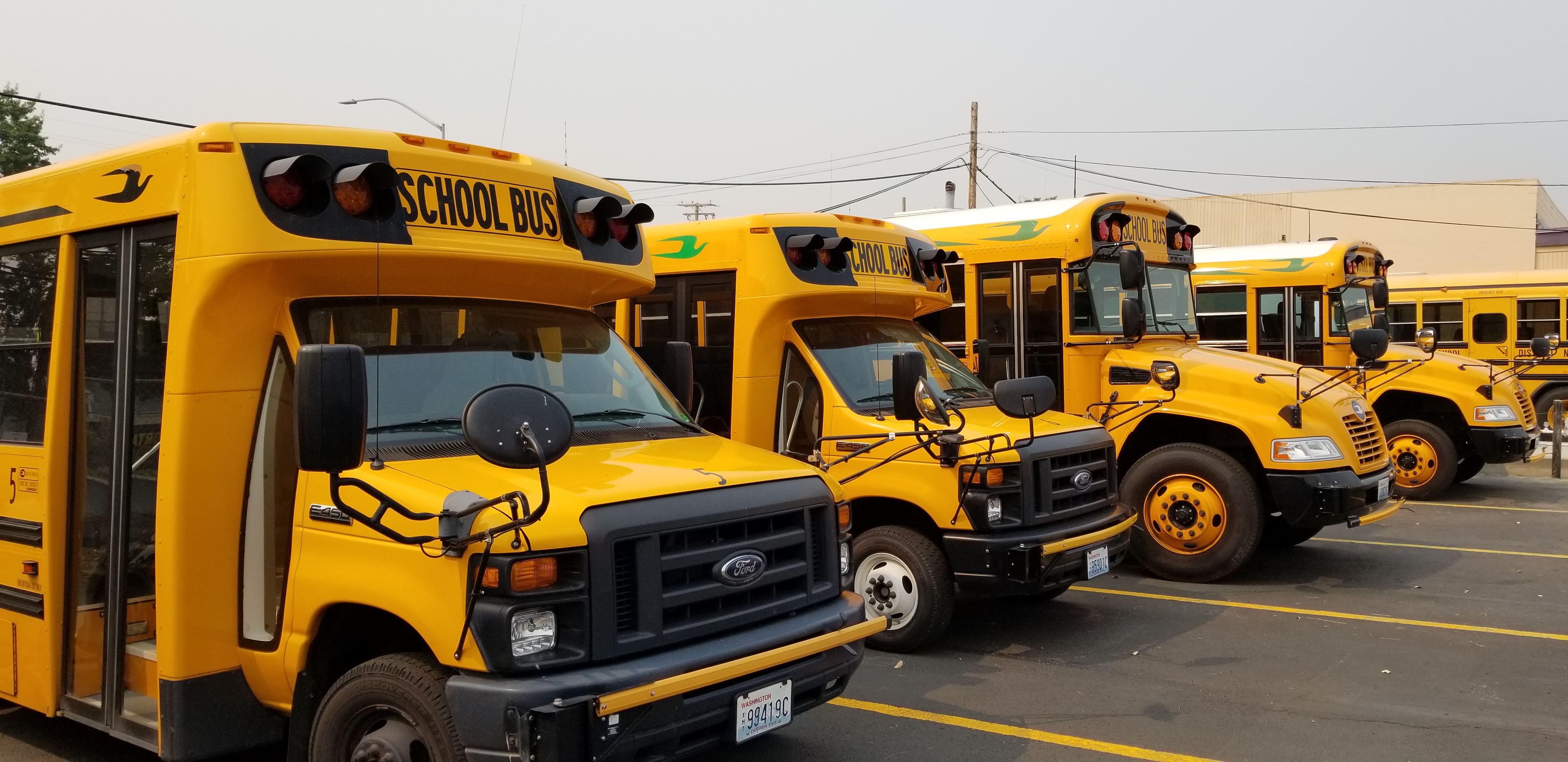April 9, 2019
Washington School District Cuts Costs and Improves Air Quality with Propane Buses
We presented the prospective fuel and maintenance cost savings, extended longevity of the buses, and most importantly for us, the benefits for our customers—the students and their families—and our case was made.
What began as a crusade to find a transportation solution that would improve air quality for students unexpectedly resulted in some significant cost savings for one public school fleet in Oak Harbor, Washington.
Oak Harbor Public Schools has led the charge for more efficient school transit in the state since 2010, replacing 19 of its 53 Type A, C, and D diesel and gasoline school buses with propane school buses. Fleet manager Francis Bagarella said he became aware of the many benefits of propane school buses early on and knew that they would be a great fit for the school district.
“Our biggest challenge initially was to convince our leadership and the school board why we wanted to switch to propane,” Bagarella said. “We presented the prospective fuel and maintenance cost savings, extended longevity of the buses, and most importantly for us, the benefits for our customers—the students and their families—and our case was made.”
Making the Case and Gathering Resources
Once the school district got on board with Bagarella’s recommendation, the fleet worked extensively with Western Washington Clean Cities (WWCC) throughout the process to gather information on propane school buses. WWCC provided guidance to secure funding for the project, including more than $250,000 in grant funding to purchase propane buses. WWCC also helped the school district form the partnerships they needed to install a 2,500-gallon propane fueling station on site.
“We are honored to have such an amazing advocate for propane school buses in our region in Francis,” said Angela Song, WWCC coordinator, “He has been a leader in educating his peers and districts around the State of Washington and his dedication to his students’ health and safety is a model that all school districts should adopt. Western Washington Clean Cities is lucky to have such an important ally and resource on our side.”
Experiencing the Benefits
Oak Harbor Public Schools estimates that its fleet of propane school buses saves the district around $35,000 in fuel costs annually compared to their conventional fuel counterparts. In addition, vehicle maintenance and service time for the propane buses has been cut in half, leaving the school district with an additional $700 or more in savings per propane bus each year.
Moreover, since placing the 19 propane school buses into operation, the school district has received rave reviews from drivers and students alike.
“My drivers always tell me how much they enjoy driving these buses—and the students love them as well,” Bagarella said. “We have noticed a direct change in student behavior on our buses due to the noise reduction inside the vehicle.”
Planning for the Future
The school’s fleet aims to convert all of its buses to propane by 2029, with a plan to replace three conventional fuel school buses each year with propane school buses. Bagarella said he is optimistic that the fleet could achieve this goal even sooner if they obtain additional grant funding.
